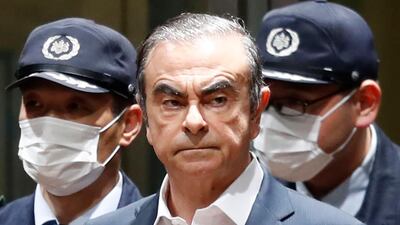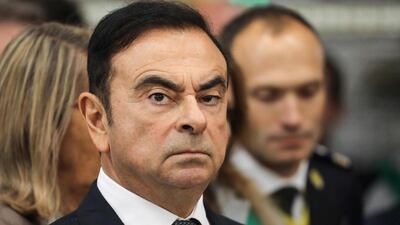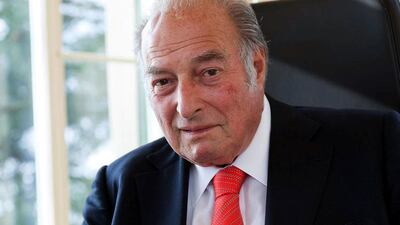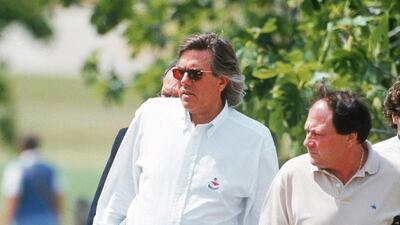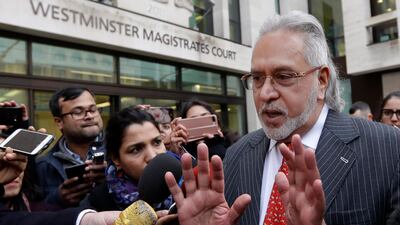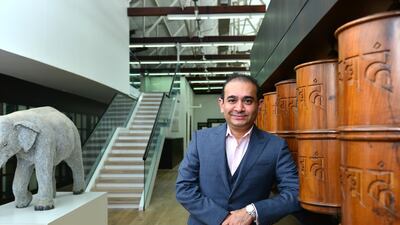Carlos Ghosn, the ousted Nissan boss facing trial in Japan for financial crimes, will hold a press conference next week in Beirut, his lawyer said on Wednesday.
The conference set for January 8, according to Reuters, will come just over a week after the former automotive titan fled to Lebanon from Tokyo where he was under house arrest. Mr Ghosn holds Lebanese citizenship, as well as Brazilian and French, and Lebanon does not have an extradition agreement with Japan.
Lebanon pushed for Mr Ghosn's return to the country a week before his long-planned escape aided by private security operatives, the Financial Times reported.
Lebanon began its efforts to secure his return in October with the help of a team of hired professionals, the newspaper said, citing sources.
Lebanese authorities renewed a request for his return on December 20 during a visit to Beirut by Keisuke Suzuki, Japan’s state minister for foreign affairs, when the matter was discussed at the end of a meeting with Lebanon’s president Michel Aoun, the FT said.
Ghadi Khoury, the Lebanese foreign ministry’s director of political affairs, said Lebanon asked for Mr Ghosn's extradition but denied that the government was involved in his escape and noted that the executive entered the country on a French passport and Lebanese ID.
The circumstances around Mr Ghosn's escape remain a mystery.
There was always a black car idling on the street in the leafy district of Tokyo that Mr Ghosn called home during his enforced year-long stay in Japan.
Neighbours believed the mysterious vehicle was keeping watch on the former Nissan chairman, as part of the conditions that restricted his freedom in Tokyo before his trial for financial misconduct.
Under conditions of his bail, Mr Ghosn, 65, had to hand in his passports, and install security cameras above the door of the large multi-level house in which he has lived since May 2019.
His communications were also limited to stop him tampering with evidence.
“He kept a low profile. There was a car parked constantly nearby,” said one western expatriate who lived in the area for nine months. “He was under constant surveillance.”
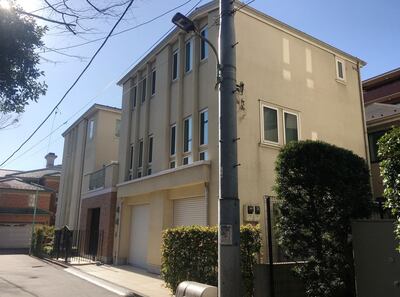
Whitney Rich, 62, an American neighbour, said he had also noticed a black car near the house.
Despite the high levels of surveillance and assurances from his legal team that he would remain in Japan to fight the charges against him, Mr Ghosn was able to flee to Lebanon.
In one account from Lebanese TV news channel MTV, Mr Ghosn escaped after a group of musicians arrived at his Tokyo house, performed and then packed up their instruments with him inside one of the larger cases.
He was then whisked to the airport and out of the country with the help of privately hired security.
A member of his entourage denied the story to AFP.
A Lebanese presidential source said the former Nissan and Renault boss had landed in Turkey before an early-hours onward flight to Lebanon.
He is now reportedly in his Beirut home with his wife.
In a statement railing against Japan’s “rigged” justice system, Mr Ghosn promised to tell his story next week as he and Japanese authorities face questions about how one of the world’s most recognisable executives escaped the country.
One of Mr Ghosn's defence lawyers, Junichiro Hironaka, claimed that he was such a famous face there was no chance he would be able to slip away undetected.
Mr Hironaka said his client's three passports remained in Japan.
But prosecutors had argued against granting Mr Ghosn bail, saying that he was a flight risk with powerful connections.
The centre-left Mainichi Shimbun newspaper quoted a senior prosecutor as saying: "This is what we predicted."
The prosecutor said Mr Ghosn's flight had “ruined” their painstaking work of collecting evidence in Japan and abroad.
Despite the strict conditions on his movements, Mr Ghosn was seen by neighbours in the streets of the upmarket area that is home to diplomats and at least one embassy, and dotted with luxury cars.
In a further embarrassment to the Japanese authorities, the presence of diplomats meant there was a constant police presence, which failed to notice or prevent his flight.
Hana Takeda, who lives in an apartment close to the house where Mr Ghosn lived, told Reuters that she would sometimes see him out walking with one of his three daughters.
“He wasn't very secretive. I would see him hanging around with his daughter,” said Ms Takeda, 28.
There was nobody at home when a reporter visited. A double garage was shut and net curtains and blinds covered windows.
Mr Ghosn was first arrested in Tokyo in November 2018 and faced four charges, including hiding income and enriching himself through payments to Middle East dealerships. He denies the charges against him.
In court in January last year, he claimed to have been “wrongly accused and unfairly detained based on meritless and unsubstantiated accusations”.
In Lebanon he said he would “no longer be held hostage by a rigged Japanese justice system where guilt is presumed, discrimination is rampant and basic human rights are denied”.
With no extradition agreement in place between Japan and Lebanon, Mr Ghosn is now unlikely to stand trial in Tokyo.
_______________
Carlos Ghosn joins the ranks of world's biggest white-collar fugitives
_______________
Lebanese security officials said that he had entered the country legally.
“There are no measures that warrant taking steps against him or prosecuting him," they said.
Japan is expected to speak with Lebanon through diplomatic channels about Mr Ghosn's flight, a senior Japanese government official said, but it was not clear what could be done to force his return.
France also started legal action against Mr Ghosn in April over alleged financial wrongdoing.
“His absconding should not have any consequences for our investigation," French prosecutor Catherine Denis told AFP.
Mr Ghosn is likely to face restrictions on his movements if Japan seeks his arrest through Interpol.
By putting his name on a "red notice" list of wanted fugitives, border staff across the world are alerted if he passes through ports, airports or seeks to travel on international flights.
Some red notices are made public but others are not publicised so suspects are not warned before travelling.
Japanese media railed against the formerly feted executive, accusing him of mocking the country’s justice system.
"The defendant Ghosn insists he escaped political persecution but travelling abroad without permission is against the conditions of his bail, and mocks the Japanese justice system," wrote the liberal Tokyo Shimbun newspaper.
"Running away is a cowardly act that mocks Japan's justice system," the Yomiuri Shimbun newspaper said.
The conservative Sankei Shimbun said prosecutors believed the court had yielded to "foreign pressure" by offering him bail, amid widespread criticism in the global media of Japan's "hostage justice system" that allows for long and repeated detention.
Mr Ghosn was bailed twice, once in March for $9 million (Dh33m), and a second time after he was rearrested in April.
"All of these were rare decisions," said the Sankei.
Meanwhile in France, cartoonist Plantu of Le Monde newspaper portrayed Mr Ghosn on Tuesday with a smile on his face, wearing a party hat and relaxing in a hammock.
